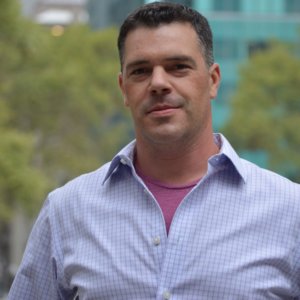
If you’re feeling stressed out about that gap on your resume, take a few deep breaths. The truth is that a few months here and there are less of a strike against you than they were just a few years ago.
The coronavirus made employers more accepting of time periods where you weren’t working. According to a survey released earlier this year, 49% of employers said that resume gaps are becoming less of a red flag because of current market conditions, and 47% said the same thing about job hopping. Hiring managers are aware of how the pandemic has affected workers and will likely be sympathetic about any associated employment gaps.
That’s especially true if you’re looking for an IT job. So far this year, job growth in the tech industry has more than made up for the losses racked up during the pandemic. In June, employers posted listings for more than 365,000 tech jobs, the biggest monthly total since 2019. There just aren’t enough experienced engineers and analysts to go around. That means if you have experience in tech, companies are likely to be a lot more forgiving.
But trust us, that gap will come up during an interview. Your best tactic is to be upfront about it. Don’t wait for an employer to ask what you were doing for the last few months. Bring it up yourself in an interview. Better yet, mention it in your resume. If possible, talk about the time as a positive for you.
How can the time you spent looking for job be a positive? Make it clear that you were using your time in a constructive way. Hiring managers like to see forward motion, even if you weren’t employed full-time. And that growth can be personal or professional.
Remember that you control the narrative. Here are a couple of ideas to help you gap-proof your resume and ace the job interview:
Consulting work. Did you pick up projects here and there while you were searching for a job? You were a consultant, and this should be highlighted on your resume and emphasized in your interview. If you were working consistently, consider adding the name of your own company — even something as simple as Jane Doe Associates — to your resume and listing your major clients and the work you did for them. Being self-employed is no longer a negative for most companies. It can even be a major plus if the work you were doing is relevant to the position you’re applying for.
Building your skills. This is an important one, especially in the tech field. Taking an online course in a relevant area — such as Tensorflow, Keras, or PyTorch if you’re a Data Scientist, or Terraform if you’re in DevOps — should be front and center on your resume. If there’s no obvious place to put it, consider adding a separate skills section. Employers will be impressed that you’re making sure to keep your skills up to date.
Career development. If you’ve been thinking a lot about where your career is headed, that’s definitely something to bring up with a hiring manager. Spending time with a career coach or an employment counselor or working with a tech-focused recruiter like Averity shows that you’re serious about making sure your next job is right for you. Discuss how the experience convinced you to apply for a position at their company.
Family leave. If you were a caregiver during the pandemic — whether it was home-schooling your kids or taking in an elderly relative — it’s okay to bring it up. Tens of millions of people were in the same boat, so hiring managers are likely to be sympathetic. (If they were in a similar situation, it might even be a bonding experience.) Talk about how you were lucky to be able to do it, that you learned a lot from the experience, and that you’re excited to get back into the job market.
The point is that no matter what you did during those few months — whether it was taking courses to further your skills, doing volunteer work in your community, or taking care of family members — be prepared to talk about it. Express it in a way that reflects well on you. Stay upbeat and focused on the future. The only thing that is a complete negative is if you have absolutely nothing to say about how you spent those few months.


Create an Account or Sign In